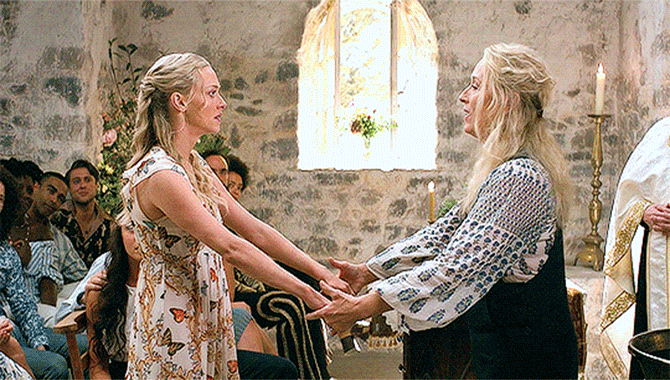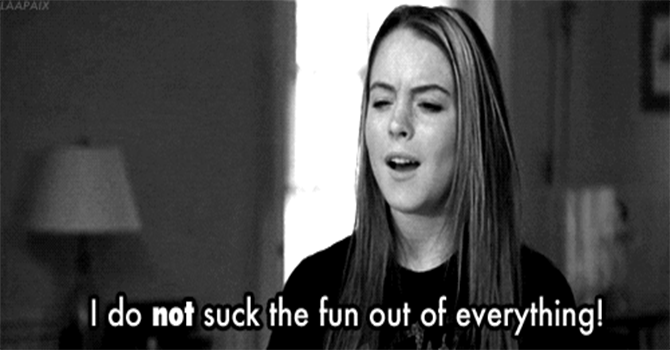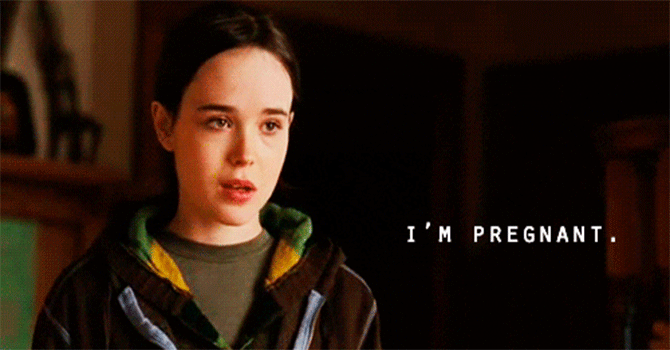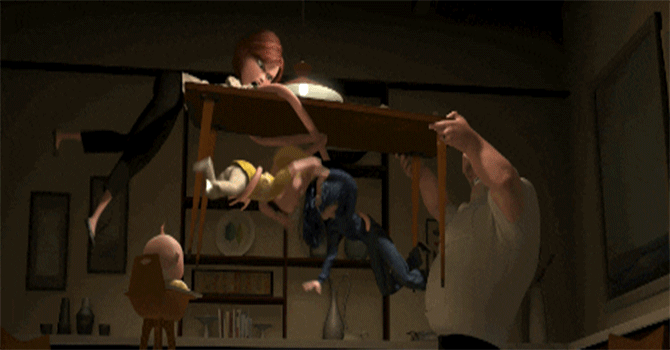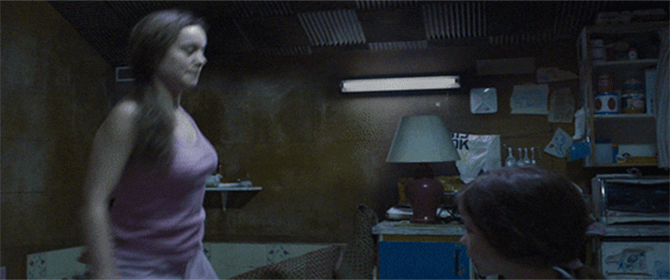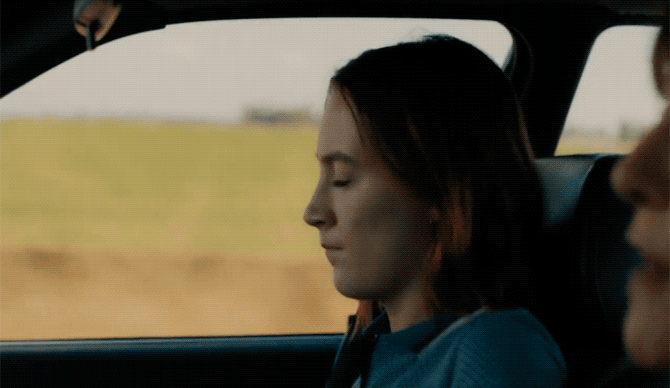9 Inspiring lessons on motherhood from these iconic movie mums
Mighty mums

Mother figures have long since been a favourite for Hollywood writers and movie buffs alike—from their tenacity, unwavering love and sheer iron will, they make for inspiring and memorable characters. But it’s not always paradise in the motherland. The art of motherhood is tricky to master and some silver screen mums don’t get it right off the bat, leading to strained relationships with their children despite their best intentions.
Nevertheless, mums of all forms, whether they be animated or fictional, have much to teach us still. In light of Mother’s Day, I look back on 11 iconic movie mums and the lessons of motherhood I’ve gleaned from them.
Mamma Mia!
You had to see this coming so let’s start with the obvious, shall we? There is so much to love about this feel-good 2008 musical filled with ABBA tunes and groovy moves. Yes, it may seem like the main plot of the film is to find out who Sophie Sheridan’s (Amanda Seyfried) real father is but the true essence at the heart of it is a mother and daughter’s unbreakable bond and love for each other.
Lesson #1: Your mother is your first and true best friend. Donna Sheridan has to be one of the best movie mums, ever. There may be plenty of love stories in the film but the most touching and important one of all is the love story between Sophie and Donna. Donna understands her daughter like the back of her hand, in a finish-each-other’s-sentences way. They giggle, dance and hug each other a ton, which makes this expressive mother-daughter relationship refreshing to watch. Lastly, the film is also an important reminder to us that friends (and lovers) may come and go, but your mum will always stay.
Freaky Friday
This 2003 comedy explores the tumultuous relationship between mother and daughter through the classic body switcheroo trope—cause nothing says understanding each other like *literally* living in their shoes, right? Thanks to a magic fortune cookie, the rebellious punk rocker Anne Coleman (Lindsay Lohan) and her uptight therapist mother Tess (Jamie Lee Curtis) are forced to live each other’s lives while finding a way back to their rightful bodies with a few bumps along the way.
Lesson #2: Mothers and children can still learn so much from each other, no matter how old we get. When going through adolescence, it can feel like no one understands you (ah, the teen angst) and your mum has this personal vendetta against you to suck the fun out of everything. Likewise, your mum probably doesn’t understand why you feel so strongly about certain things and writes it off as a phase or puberty. Through their body swap, Anne experiences the difficulties of adulting and motherhood while Tess realises being a teenager in high school isn’t all that fun either. By the end of the movie, both mother and daughter learn how to treat each other with respect and better understanding.
Juno
I absolutely adore this movie. This 2007 coming-of-age film deals with the heavy topic of motherhood and maternity in such a poignant way through the perspective of a high school teen. The film is well-loved by both pro-life and pro-choice enthusiasts—an incredibly difficult feat for a movie of this nature to please both sides of the spectrum. After all, the touching script did win Best Original Screenplay at the 80th Academy Awards and the BAFTAs.
Lesson #3: Mothers need a strong support system. While pregnancy is often a joyous occasion, it can also be extremely scary and confusing, especially when you’re not expecting it and are still growing up yourself. Behind Juno’s sharp tongue and infallible disposition, the film shows that she is still a scared 16-year-old in a situation beyond her maturity level. During this time, her friends and family are supportive towards her and help her process her emotions instead of meeting her with shame and judgement. This film showed me how important stable and positive support systems are for mothers-to-be.
Harry Potter franchise
As far as iconic movie mums go, the character of Lily Potter is at the top of the list for any Potterhead. In the books and films, audiences are made aware of her sacrifice in protecting Harry from being killed by Voldemort when he was a baby. Throughout the Wizarding World, Lily’s brave sacrifice is known to all and is a testament to her bravery and love for her son even in the face of the darkest evil.
Lesson #4: Never underestimate a mother’s love. While the extent of Lily’s magical abilities is still not fully known, it is clear that her ultimate sacrifice was her greatest show of magic, as it is an act that can only be powered by pure, undying love and a willingness to sacrifice one’s life. Her magic was so powerful that it not only protected Harry on that fateful night but also severely wounded the Dark Lord. From then on, Lily’s selfless act serves as motivation for Harry during his lowest moments and he continues to live out her legacy through kindness, loyalty and bravery.
The Joy Luck Club

If there’s one film that hits close to home, it’s this absolute tear-jerker of a family drama film. There’s so much to learn from this 1993 movie—the effects of war, sexism, immigration, sacrifice and of course, the relationship between mother and daughter. In The Joy Luck Club, the clash of tradition and modernity; old and young; and past and future collide more than ever.
Lesson #5: Don’t be fooled by a mother’s tough appearance. Throughout the film, the daughters of The Joy Luck Club express the difficulties of being first-generation immigrants in America. Not only are they having a tough time fitting in, but they also find it difficult to connect with their mothers and meet their expectations. However, when June expresses her sadness at disappointing her mother, she quickly comforts her and tells June she is enough in the video above. This reminds me that while mothers can be tough and are not as expressive with their feelings (this is often the case in Asian households), they just want to see you happy and give you a better life than the one they had.
The Incredibles 1 and 2
The only animation movie mum on this list is none other than Mrs. Incredible, or Elastigirl. She’s the glue holding the family together (as most mums are). While she does a pretty good job most of the time, she also has her fair share of struggles while her husband is off battling the bad guys. When she has her chance at the baddies, she’s constantly worrying about her family at home—mothers really can’t catch a break.
Lesson #6: Mothers can be stretched thin too. Sorry not sorry for the pun but I just had to. Jokes aside, I think this rings true both literally and metaphorically. It’s no mistake that each Incredible’s power is in some way indicative of their personality: Mr Incredible’s need to be the macho hyper-masculine father figure; Violet’s shy disposition; and Elastigirl’s role as the ever-so-malleable mother. No matter how invincible they may seem, every mum deals with the same issues and it can wear them down—even for a badass superhero, so let’s treat them gently!
Room
In another riveting film, Brie Larson gives the award-winning performance of her career as a twenty-something woman simply named, Ma who lives with her five-year-old son, Jack. In an unfortunate state of circumstances, it is revealed that Ma has been held captive for seven long years by her kidnapper, unbeknownst to Jack.
Lesson #7: Never underestimate the sheer resilience of mothers. Despite the bleak reality they are in, Ma always finds ways to keep Jack happy and content in their little world they have dubbed Room. With her perseverance and resilience, Ma was able to turn the claustrophobic 10-foot room with only a skylight for a window into a huge playground for her little boy—while absorbing all the pain for herself.
Lady Bird
This modern classic from the coming-of-age genre was a crowd and critic favourite when it came out in 2017. It chronicles the life of Christine, who calls herself Lady Bird, as she navigates her senior year of high school and is desperate to leave the mundanity of Sacramento for someplace more cultured. Her relationship with her mother, Marion becomes increasingly strained when their ideals clash.
Lesson #8: It can be hard to express what you really feel to each other. In the film, the protagonist can come off as an ungrateful snob whose adolescent solipsism rears its ugly head—she complains about being cramped up at home despite her family not being financially blessed and rarely does any house chores. On the other hand, Marion is constantly cutting off Lady Bird’s big dreams and worries so much about money that it stifles every conversation (it literally made Lady Bird jump out of a moving car to to escape it).
At the heart of it, Lady Bird wants her mum to say that she can be extraordinary and that she believes in her. While it isn’t fair to say that Marion puts her daughter down intentionally, her actions seem to stem from the anger and insecurity of not being able to provide for her family. Both are coming from a place of hurt that affects how they communicate. While the mother and daughter don’t express that they love each other face to face (they do it through letters and an apologetic voicemail), the overarching feeling of love and appreciation still resonates loudly.
Kim Ji-Young, Born 1982

This South Korean movie was one of the most important movies released in 2019. Based on the bestselling novel of the same name, the film explores the institutional misogyny and sexist microaggressions women in Korean society face. From being expected to slave away in the kitchen during festive holidays to taking care of household chores such as vacuuming, taking out the trash and cleaning up, mothers are presumed to take up this duty without question. For Kim Ji Young, it all proves too much for her and she suffers quietly with her depression.
Lesson #9: Mothers should be treated with respect and not fall victim to systemic patriarchy. It’s a simple statement but so hard to implement. While this movie was a commercial success, it also sparked heavy criticism from anti-feminists who deemed the content controversial—indicative of how normalised such behaviour and sentiments came to be.
It’s a definite eye-opener as I (and I’m sure most of us) have been guilty of taking our mum’s efforts for granted unconsciously. I also greatly appreciate this film for exploring postpartum depression which is so common in mothers, even though mental health is still a taboo topic in South Korea. Mothers are not invincible, like we tend to think they are—they, too, can cry, feel hurt and fall into bouts of depression. We should do our best to protect them as much as they protect us.
For more film and TV reads, head here.
| SHARE THE STORY | |
| Explore More |

